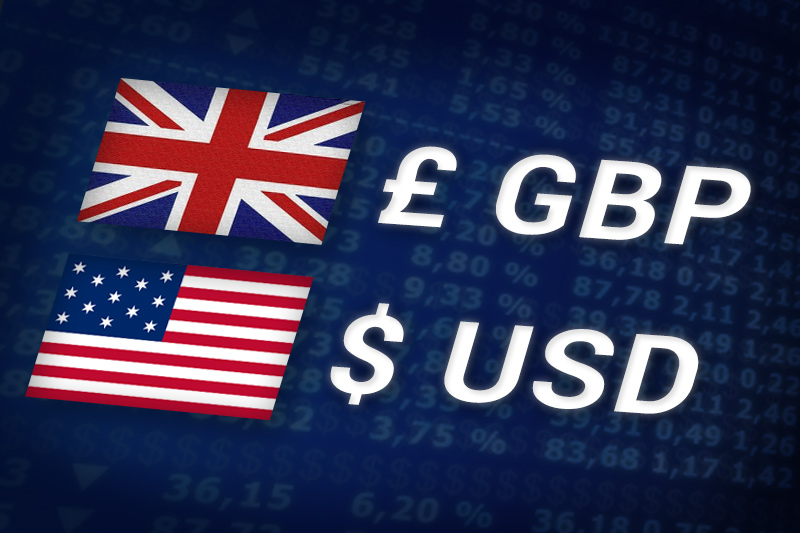Investing.com – The pound was trading close to a two-and-a-half month high against the U.S. dollar on Wednesday, as market sentiment remained firm despite slightly weaker-than-expected U.S. data on employment and manufacturing.
GBP/USD hit 1.5868 during U.S. morning trade, the pair’s highest since November 18; the pair subsequently consolidated at 1.5845, gaining 0.54%.
Cable was likely to find support at 1.5705, the session low and resistance at 1.5887, the high of November 18.
The U.S. Institute for Supply Management said its index of purchasing managers rose to 54.1 in January, from a revised reading of 53.1 in December, slightly missing expectations for an increase to 54.5.
A report earlier showed that the U.S. private sector added fewer-than-expected jobs in January, while the previous month’s figure was revised down.
Payroll processing firm ADP said non-farm private employment rose by a seasonally adjusted 170,000 in January, falling short of expectations for an increase of 190,000.
The previous month’s figure was revised down to a gain of 292,000 from a previously reported increase of 325,000.
The pound strengthened broadly earlier after data showed that the manufacturing sector in the U.K. expanded at the fastest pace in eight months in January, as output grew at the fastest rate in 10 months and new orders rose.
The Markit manufacturing PMI rose to 52.1, the highest level since May, from an upwardly revised 49.7 in December, outstripping expectations for an increase to 50.1.
The data eased concerns over the outlook for the U.K. recovery after data last week showed that the country’s economy contracted in the fourth quarter, but did little to quell speculation that the Bank of England may implement fresh easing measures.
Market sentiment was buoyed by better-than-expected German manufacturing data earlier in the day, while Portugal saw bond yields fall at a successful auction of short-term government debt earlier.
Elsewhere, the pound was lower against the euro, with EUR/GBP adding 0.14% to hit 0.8313.
Also Wednesday, U.K. Chancellor George Osborne told the Federal Reserve that proposed U.S regulations on banks’ trading activities will make it more difficult and more costly for the U.K. to issue government bonds.
GBP/USD hit 1.5868 during U.S. morning trade, the pair’s highest since November 18; the pair subsequently consolidated at 1.5845, gaining 0.54%.
Cable was likely to find support at 1.5705, the session low and resistance at 1.5887, the high of November 18.
The U.S. Institute for Supply Management said its index of purchasing managers rose to 54.1 in January, from a revised reading of 53.1 in December, slightly missing expectations for an increase to 54.5.
A report earlier showed that the U.S. private sector added fewer-than-expected jobs in January, while the previous month’s figure was revised down.
Payroll processing firm ADP said non-farm private employment rose by a seasonally adjusted 170,000 in January, falling short of expectations for an increase of 190,000.
The previous month’s figure was revised down to a gain of 292,000 from a previously reported increase of 325,000.
The pound strengthened broadly earlier after data showed that the manufacturing sector in the U.K. expanded at the fastest pace in eight months in January, as output grew at the fastest rate in 10 months and new orders rose.
The Markit manufacturing PMI rose to 52.1, the highest level since May, from an upwardly revised 49.7 in December, outstripping expectations for an increase to 50.1.
The data eased concerns over the outlook for the U.K. recovery after data last week showed that the country’s economy contracted in the fourth quarter, but did little to quell speculation that the Bank of England may implement fresh easing measures.
Market sentiment was buoyed by better-than-expected German manufacturing data earlier in the day, while Portugal saw bond yields fall at a successful auction of short-term government debt earlier.
Elsewhere, the pound was lower against the euro, with EUR/GBP adding 0.14% to hit 0.8313.
Also Wednesday, U.K. Chancellor George Osborne told the Federal Reserve that proposed U.S regulations on banks’ trading activities will make it more difficult and more costly for the U.K. to issue government bonds.
